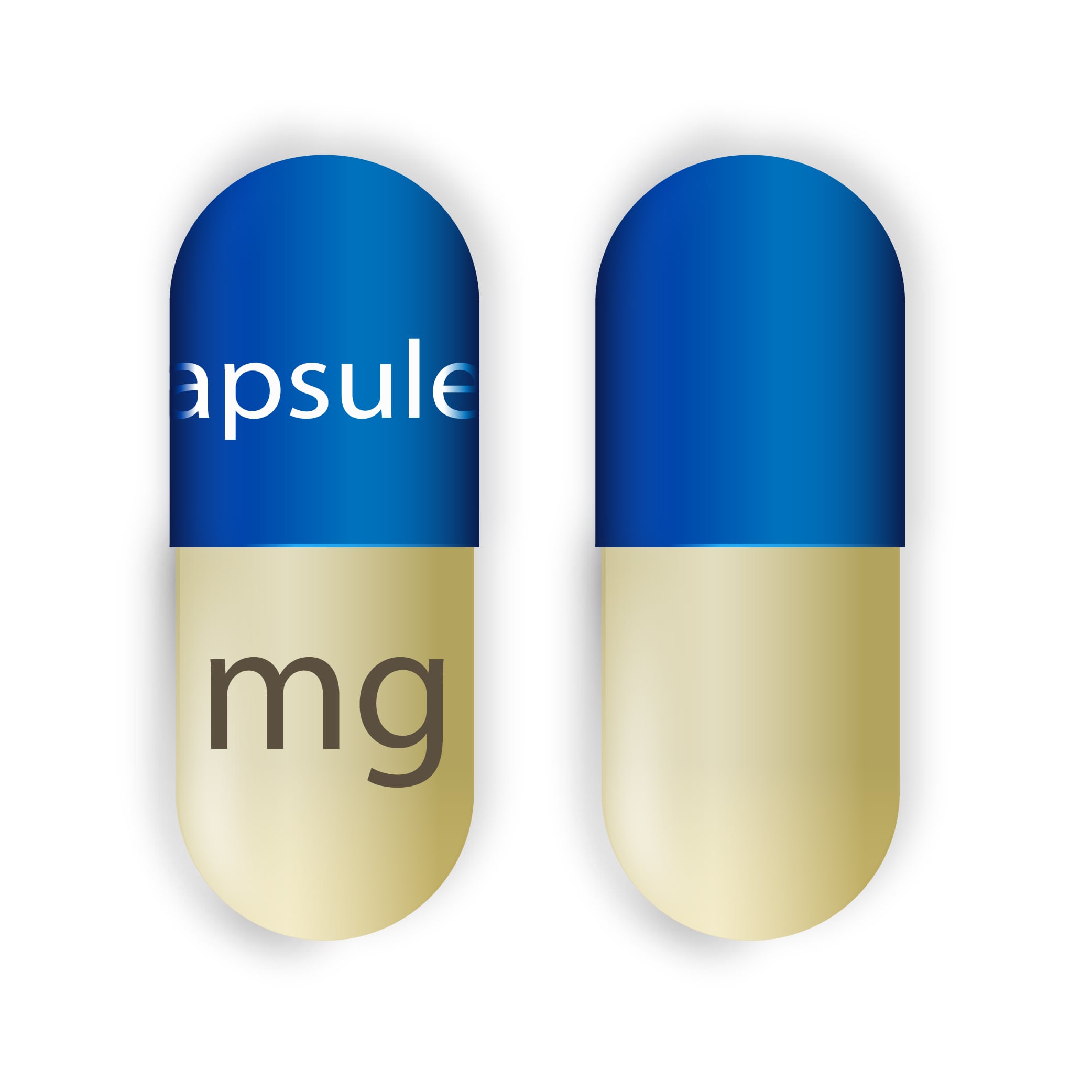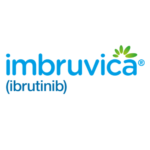Ibrutinib
About Ibrutinib
- Ibrutinib received its initial FDA approval in 2013 for the treatment of mantle-cell lymphoma.
- Subsequent approvals followed in 2014, extending its use to patients with chronic lymphocytic leukemia (CLL) who had undergone at least one prior therapy, as well as for those with CLL featuring chromosome 17p deletion. In 2015, Ibrutinib gained FDA approval for the treatment of Waldenström’s macroglobulinemia.
- Ibrutinib 140 mg, a kinase inhibitor, is prescribed for the treatment of various conditions. It is indicated for adult patients with mantle cell lymphoma (MCL) who have undergone at least one prior therapy, with approval granted under accelerated approval based on the overall response rate.
- Continued approval is contingent upon confirmation of clinical benefit in a confirmatory trial(s). Additionally, Ibrutinib is prescribed for adult patients with chronic lymphocytic leukemia (CLL)/Small lymphocytic lymphoma (SLL), including those with 17p deletion.
- It is also approved for adult patients with Waldenström’s macroglobulinemia (WM) and those with marginal zone lymphoma (MZL) requiring systemic therapy after at least one prior anti-CD20-based therapy.
- The approvals for MZL and MCL are under accelerated approval based on the overall response rate, with continued approval subject to confirmation of clinical benefit in confirmatory trials.
- Furthermore, this medicine is indicated for both adult and pediatric patients aged 1 year and older with chronic graft versus host disease (cGVHD) after the failure of one or more lines of systemic therapy.
- Ibrutinib acts by inhibiting the proliferation and survival of B-cells through the irreversible binding to Bruton’s tyrosine kinase (BTK) protein. The binding to BTK hinders the B-cell receptor pathway, a pathway frequently excessively active in B-cell cancers.
Strength:
Ibrutinib capsules are available in strengths of 70 mg and 140 mg.
Recommended Dosage:
Administer Ibrutinib capsule 140 mg consistently at approximately the same time each day. Swallow the tablets or capsules whole with a glass of water; do not open, break, or chew the capsules.
In the event that a dose of the medicine is missed at the scheduled time, it can be taken as soon as possible on the same day, with a return to the normal schedule the following day. It is important not to take extra doses of Ibrutinib to compensate for the missed dose.
- For Mantle Cell Lymphoma (MCL) and Marginal Zone Lymphoma (MZL), the recommended dosage of Ibrutinib is 560 mg orally once daily, to be continued until disease progression or the occurrence of unacceptable toxicity.
- Regarding Chronic Lymphocytic Leukemia (CLL)/Small Lymphocytic Lymphoma (SLL) and Waldenström’s Macroglobulinemia (WM), the advised dosage for Ibrutinib is 420 mg orally once daily until disease progression or unacceptable toxicity. In CLL/SLL, this medicine can be used alone, in combination with rituximab or obinutuzumab, or in conjunction with bendamustine and rituximab (BR).
- For WM, Ibrutinib can be administered either as a single agent or in combination with rituximab. When administering this medicine with rituximab or obinutuzumab simultaneously, consider administering Ibrutinib before rituximab or obinutuzumab on the same day.
- For Chronic Graft versus Host Disease (cGVHD), the recommended dosage is 420 mg orally once daily for patients aged 12 years and older, and for patients aged 1 to less than 12 years, the dosage is 240 mg/m2 orally once daily (up to a dose of 420 mg).
- This treatment continues until cGVHD progression, recurrence of an underlying malignancy, or unacceptable toxicity.
- Discontinuation of Ibrutinib should be based on the medical assessment of the individual patient when therapy for cGVHD is no longer required.
Important:
The recommended dosage of this medicine for adult patients with B-cell malignancies varies based on hepatic impairment. For those with mild hepatic impairment (Child-Pugh class A), the dosage is 140 mg daily, while patients with moderate hepatic impairment (Child-Pugh class B) should take 70 mg daily. Ibrutinib use is not recommended for patients with severe hepatic impairment (Child-Pugh class C).
In patients aged 12 years and older with a total bilirubin level >1.5 to 3 times ULN, the dosage is 140 mg daily, and for those 1 to less than 12 years old in the same bilirubin range, the recommended dosage is 80 mg/m2 daily. Ibrutinib is to be avoided in patients with a total bilirubin level exceeding 3 times ULN unless the elevation is of non-hepatic origin or due to Gilbert’s syndrome. Do not consume grapefruit or grapefruit juice while taking this medicine.
Warnings & Precaution:
- Monitor patients for potential complications while using Ibrutinib, including hemorrhage, infections, cardiac arrhythmias, cardiac failure, and sudden death.
- Keep a close eye on blood pressure for hypertension and initiate treatment when necessary.
- Regularly check complete blood counts monthly to identify and manage cytopenias.
- Be vigilant for second primary malignancies, such as skin cancers and other carcinomas.
- Assess baseline risk for tumor lysis syndrome (TLS), take precautions, and monitor and treat for TLS accordingly.
- Additionally, inform females of reproductive potential about the potential fetal harm and advise them to use effective contraception.
- Monitor patients for potential complications while using Ibrutinib, including hemorrhage, infections, cardiac arrhythmias, cardiac failure, and sudden death.
- Keep a close eye on blood pressure for hypertension and initiate treatment when necessary.
- Regularly check complete blood counts monthly to identify and manage cytopenias. Be vigilant for second primary malignancies, such as skin cancers and other carcinomas.
- Assess baseline risk for tumor lysis syndrome (TLS), take precautions, and monitor and treat for TLS accordingly.
- Additionally, inform females of reproductive potential about the potential fetal harm and advise them to use effective contraception.
Common Ibrutinib Side Effects:
- Thrombocytopenia
- Diarrhea
- Fatigue
- Musculoskeletal pain
- Neutropenia
- Rash
- Anemia
- Bruising
- Pyrexia
- Muscle spasms
- Stomatitis
- Hemorrhage
- Nausea
- Abdominal pain
- Pneumonia
- Headache
Use in Specific Population
- Ibrutinib has the potential to cause fetal harm, as indicated by animal studies. However, there is a lack of available data on its use in pregnant women to assess the risk of major birth defects and miscarriage.
- Information about the presence of ibrutinib or its metabolites in human milk, its effects on the breastfed child, and its impact on milk production is currently unavailable.
- Due to the potential for serious adverse reactions in breastfed infants, it is advised that women refrain from breastfeeding during Ibrutinib treatment and for one week after the last dose.
- Prior to initiating Ibrutinib, verify the pregnancy status in females of reproductive potential.
- In terms of contraception, females of reproductive potential should use effective contraception during this medicine treatment and for one month after the last dose.
- Likewise, males with female partners of reproductive potential should also practice effective contraception during this medicine treatment and for one month after the final dose.
- Regarding the treatment of chronic graft versus host disease (cGVHD) in pediatric patients aged 1 year and older after the failure of one or more lines of systemic therapy, the safety and effectiveness of this medicine have been established.
- No significant differences in effectiveness were observed between younger and older patients.
- However, the use of this medicine is not recommended in patients with severe hepatic impairment (Child-Pugh class C).
- Furthermore, the safety of the medicine has not been assessed in patients with mild to severe hepatic impairment according to Child-Pugh criteria.
Storage and Handling
- Store Ibrutinib capsules in a dry location at the temperature of 68°F and 77°F (20°C and 25°C).
- Do not freeze the medicine.
- Keep the medicine away from pets and children.
About Sansfro
Sansfro is committed to bridging the healthcare gap. Our purpose is to bring hope and healing to patients suffering from rare diseases by linking them with life-saving treatments through our Named Patient Program. Join us in our quest for a better and healthier world.
Know More...Alternate Indian Generic Brand
Ibrunat
Ibrukem
IB-Tib
Bdbrut
FAQ'S
What are the uses of Ibrutinib?
Ibrutinib is prescribed for various cancer types, including
- Chronic Lymphocytic Leukemia (CLL)
- Small Lymphocytic Lymphoma (SLL)
- Mantle Cell Lymphoma (MCL)
- Waldenström’s Macroglobulinemia
- Marginal Zone Lymphoma (MZL)
It is also used in patients with chronic graft versus host disease (cGVHD) who have not responded to previous treatments. Functioning as a targeted therapy, this medicine inhibits specific pathways crucial for the growth and survival of cancer cells. It is crucial to emphasize that the administration of Ibrutinib should be strictly supervised by a healthcare professional, taking into consideration individual patient conditions and requirements.
What medical conditions should I inform my healthcare provider about before taking Ibrutinib?
Before starting Ibrutinib, it is crucial to inform your healthcare provider about any recent surgeries, bleeding problems, heart rhythm issues, smoking habits, or medical conditions increasing the risk of heart disease. Additionally, disclose any infections, liver problems, pregnancy, or plans to become pregnant. For females of reproductive potential, discuss the use of effective contraception during treatment and for one month after the last dose. For males with female partners of reproductive potential, effective contraception is also advised during treatment and for one month after the last dose.
What medications or substances should I avoid while taking Ibrutinib capsule?
During Ibrutinib treatment, it is advised to refrain from drinking grapefruit juice, eating grapefruit, or consuming Seville oranges, as these may increase the amount of this medicine in your blood.
How should I take Ibrutinib 140 mg?
Ibrutinib 140 mg should be taken exactly as prescribed by your healthcare provider, once a day at approximately the same time. It is available in capsule, tablet, and oral suspension forms. If using capsules or tablets, swallow them whole with water, without opening, breaking, or chewing. If using oral suspension, follow the detailed Instructions for Use provided with the medication.
What should I do if I miss a dose of Ibrutinib?
If you miss a dose, take it as soon as you remember on the same day and continue with your regular schedule the next day. Avoid taking extra doses to make up for a missed dose. If you take too much Ibrutinib, contact your healthcare provider or visit the nearest hospital emergency room.
What precautions should I take while on Ibrutinib capsule?
While on Ibrutinib, it is important to avoid situations that may lead to bleeding problems. Inform your healthcare provider promptly if you experience signs of bleeding, such as blood in stools, increased bruising, pink or brown urine, dizziness, or unexpected bleeding. Infections can occur, so report any signs like fever, weakness, or confusion. Regular monitoring for heart problems, high blood pressure, and blood cell counts is essential. Be aware of potential side effects, including diarrhea, tiredness, muscle and bone pain, rash, and bruising.
What is Ibrutinib and Imbruvica?
Ibrutinib is the active pharmaceutical ingredient (API) present in the medication brand name Imbruvica. Essentially, Ibrutinib is the “generic” name for the drug, while Imbruvica is the specific brand-name formulation developed. Both refer to the same medication with the same chemical composition and mechanism of action.
What is the Ibrutinib Price in India?
The cost of Ibrutinib in India is contingent upon the selection between a branded generic and an authorized generic. Both authorized generics and branded generics act as substitutes for Innovator medications, presenting more economically viable options compared to their brand-name counterparts. For a detailed list of available alternatives for this medication, please reach out to Team Sansfro.
How can I buy Ibrutinib online?
To acquire the generic version of Ibrutinib from India, individuals can submit an inquiry through the website or get in touch with the Sansfro Health team. Feel free to contact us at +91 9315705373 or via email at help@sansfro.com. Our services extend to the supply of medications within India and globally.

Dr Anchal Aryan
Medical counselor
Patient Stories
Word Wide Delivery:
India, Andorra, Argentina, Australia, Austria, Azerbaijan, Bahrain, Brazil, Bulgaria, Cambodia, Canada, Chile, Colombia, Costa Rica, Croatia, Cyprus, Denmark, Dominican Republic, Estonia, Finland, France, Georgia, Germany, Ghana, Greece, Guatemala, Iraq, Ireland, Israel, Italy, Jamaica, Japan, Jordan, Kenya, Kuwait, Latvia, Lebanon, Libya, Lithuania, Malawi, Mexico, Montenegro, Nepal, Netherlands, New Zealand, Nigeria, Norway, Oman, Pakistan, Paraguay, Peru, Poland, Qatar, Romania, Saudi Arabia, Serbia, Singapore, Slovenia, Spain, Sri Lanka, Sweden, Switzerland, United Arab Emirates, United Kingdom, United States, Venezuela, Zimbabwe, Afghanistan, Albania, Algeria, American Samoa, Angola, Anguilla, Antarctica, etc.



